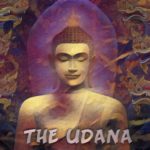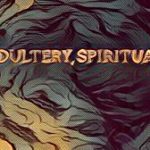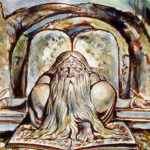Recent Comments
- Scott on Aloneness
- Chodpa on The Place where the Primordial Speaks
- Chodpa on The Cuckoo of Presence
- Afzar on Bodhidharma’s teacher, Prajnatara
- Vajragoni on Audiobook is released
-
Recent Posts
Categories
- A Darkness Visible
- A Docetic Assessment
- A Mystical Odyssey through the Sagathakam
- AI Creations
- Akṣayamatinirdeśasūtra
- Akṣhobhya’s Pure Land
- Ālaya-vijñāna
- Anūnatvāpūrṇatvanirdeśaparivarta
- Ariyapariyesanā Sutta
- Ascending the Noble Mountain of Primordial Perfection
- Asceticism
- Ashtavakra Gita in Light of the Unborn
- Audiobook
- Bankei Zen
- Beyond the Ascent
- Beyond the Rainbow Body
- Black Dragon Eye Mandala
- Bodhicitta
- Buddhadharma
- Buddhism’s Black Holes
- Buddhist Anecdotes
- Buddhist Hells
- Buddhist Meditations on the Tarot
- Chuang-Tzu
- Contemporary Musings
- Ḍākiṇī
- Dāsbodh
- Dharmakaya Abbey
- Dharmakaya Stick
- Divine Revelation
- Doctrine of the Void
- Dust Contemplation
- Ekacitta: Advanced Studies in Dark Zen
- Entry into the Dharmadhātu
- Eremitical Dhyani Meditations
- Exploring the Book of Revelation
- Gnostikos
- Hsin Hsin Ming
- Journey to the Center of the Mind
- Karma and Rebirth
- Korean Sŏn
- Kulayarāja Tantra—The Motherly Buddha
- Little Office of Our Lady of the Void
- LSD and Psychedelic Buddhism
- Māṇḍukya Kārikā
- Mañjuśrī Teaches Prajñāpāramitā
- Māra and Satan
- Meister Eckhart
- Mud and Water: Bassui Zen
- Mystagogia
- Nirvana
- Notes from the Iron Stupa
- Nothingness in Nāgārjuna and John of the Cross
- Obscure Religious Cults
- Preparation for the Afterlife
- Primordial Qigong
- Reflections on the Saṃdhinirmocana Sūtra
- Spirituality
- Springtime with Tozen
- Terma: A Mind Film by Vajragoni
- The Afterglow
- The Awakening of Faith
- The Bhagavad Gita
- The Book of Bodhi
- The Cloud of Unknowing in Light of the Unborn
- The Diamond Sutra
- The Divine Ātman
- The Divine Liturgy of Vajrasattva
- The Doctrine of Awakening
- The Dragon Mind of Zen Tarot
- The Elucidation of Consciousness
- The Experience of No-Self
- The Great Perfection of the Unborn Mind: A Book of Privy Counseling
- The Heart Sutra
- The Hermit's Den
- The Khaggavisāṇa Sutta: A Rhinoceros Horn
- The Lankavatara Sutra
- The Lankavatarian Book of the Dead
- The Lion's Roar of Queen Śrīmālā
- The Lotus Sutra
- The Mahāparinirvāṇasūtra
- The Naga Chronicles
- The Platform Sutra
- The Ratnagotravibhāgaśāstra
- The School of the Spirit
- The Secret Golden Light of the Unborn
- The Soul
- The Śūrańgama Sūtra
- The Sutra of Primordial Enlightenment
- The Tathāgatagarbhatārā Tantra
- The Udāna
- The Unborn Mind Mythos
- The Unborn Mind Sessions
- The Unborn Odyssey: A Novel
- The Vajrasamādhi Sutra
- The Vimalakirti Sutra
- The Yogasūtras of Patañjali
- The Zen Teaching of Bodhidharma
- The Zen Teaching of Instantaneous Awakening
- The Zen Teachings of Huang Po
- Theologia Mystica
- Tozen Teaching
- Tsung-mi: An Intimate Study
- Unborn I Ching
- Unborn Light Reiki
- Uncategorized
- Vasubandhu and the Absolute
- Wisdom from the Masters
- Wordsworth and Zen
- Yoga of the Manomayakāya
- Zen
- Zuowang
Archives
- October 2024
- August 2024
- February 2024
- January 2024
- December 2023
- November 2023
- October 2023
- September 2023
- August 2023
- July 2023
- June 2023
- May 2023
- April 2023
- March 2023
- February 2023
- January 2023
- December 2022
- November 2022
- October 2022
- September 2022
- August 2022
- May 2022
- April 2022
- March 2022
- February 2022
- January 2022
- December 2021
- November 2021
- October 2021
- September 2021
- August 2021
- May 2021
- April 2021
- March 2021
- February 2021
- January 2021
- December 2020
- November 2020
- October 2020
- September 2020
- August 2020
- May 2020
- April 2020
- March 2020
- February 2020
- January 2020
- December 2019
- November 2019
- October 2019
- September 2019
- August 2019
- June 2019
- February 2019
- January 2019
- December 2018
- October 2018
- August 2018
- April 2018
- March 2018
- February 2018
- January 2018
- December 2017
- November 2017
- October 2017
- September 2017
- August 2017
- May 2017
- April 2017
- March 2017
- February 2017
- January 2017
- December 2016
- November 2016
- October 2016
- September 2016
- August 2016
- July 2016
- May 2016
- April 2016
- March 2016
- February 2016
- January 2016
- December 2015
- November 2015
- October 2015
- September 2015
- August 2015
- July 2015
- June 2015
- May 2015
- April 2015
- March 2015
- February 2015
- January 2015
- December 2014
- November 2014
- October 2014
- September 2014
- August 2014
- May 2014
- April 2014
- March 2014
- February 2014
- January 2014
- December 2013
- November 2013
- October 2013
- September 2013
- August 2013
- May 2013
- April 2013
- March 2013
- February 2013
- January 2013
- December 2012
- November 2012
- October 2012
- September 2012
- August 2012
- May 2012
- April 2012
- March 2012
- February 2012
- January 2012
- December 2011
- November 2011
- October 2011
Meta
Monthly Archives: February 2020
Coming in March: The Udāna

Ash Wednesday has always been profoundly deep-rooted in my being. Perhaps no other date on the Catholic calendar induces such a sense of somberness that millions (mostly non-practicing Catholics) are obsessed to go to church to get those ashes splayed across their foreheads. While that particular liturgical action no longer holds any stock for me, the solemn season of Lent that it ushers in does prove to have an enduring quality. If one were to search the archives here at Unborn Mind Zen, you would find many an auspicious-Buddhist series commencing during this period. This year will be no different as we will be offering an exegesis of the well-renowned, The Udāna. John D. Ireland in his excellent translation points-out its defining quality as an inspired utterance:
Posted in The Udāna, Uncategorized
Tagged Ash Wednesday, Inspired Utterances of the Buddha, pali canon, udāna, Versus of Uplift
Leave a comment
Engaged Buddhism?

Generally when one considers “Engaged Buddhism” one thinks of the writings of Thich Nhat Hanh or perhaps the writings of Stephen Batchelor and his secular-oriented bent. One can think of many others like Robert Thurman or even the earlier writings of Walpola Rahula. Of course the list can go on incorporating the tradition of Theravada Buddhism and more mainstream Mahayana Buddhism. For this blog I’d like to focus on the writings of Ken Jones, particularly his “Buddhism and Social Action”, and how they may, in some fashion, pertain to our Transcendentalist approach to Engaged Buddhism here in Unborn Mind Zen. One of our blogs, “The Karma Factor”, spoke of its relationship to rebirth—perhaps even to the nether regions of Buddhist Hell. Ken Jones offers a “social” component:
Posted in Contemporary Musings, Spirituality
Tagged Engaged Buddhism, Ken Jones, social karma, Transcendent Factor
Leave a comment
Mind to Mind Transmission?

Mind to Mind transmission is not about [somehow] coming to meet [itself] as in a mirror—like an objective face staring back at itself. Mind in itself does not need to have a transmission with itself, the very suggestion sound’s rather schizophrenic in nature, most juvenile! “Mind coming to know itself?” Silly, reminds me of that song from the musical, The King and I–“Getting to know you, getting to know all about you. Getting to like you, getting to hope you like me. Getting to know you, putting it my way, But nicely, You are precisely, My cup of tea.” Does it take “a selfie” of itself as well?
New Website Theme

Welcome to our new look!
For this new decade have decided to return to the feel of our original theme from 2011, with a few variables. This theme is known as parchment. Love the ancient feel to it.
The Notion of Time in Buddhism

It needs to be stressed that Buddhism takes a very different stance on the notion of time and its effect on sentient beings. In Christianity there is a triadic-understanding: a person is born at one particular junction in time-based reality, then undergoes a certain trial-based system in which he/she must perform in a moral manner to be made worthy of entering into—eternal life in which they depart from this world in order to enter eternally into God’s “heaven”. So it’s essentially going from point A to point B in a linear fashion with no other variables interfering. From the Buddhist stance, one’s purported lifespan has always been ongoing in an unending cyclic-fashion. The wheel of samsara spins in a diurnal manner and there is no escape from it since one consistently becomes reborn again and again into one of the six realms of impermanence—hence the problem is how to bring this cyclic-existence to a final and successful conclusion. In this model of time, the mind-stream of sentient beings is beginningless, quelling any notion of linear time with a predestination in mind. So for a Buddhist, linear time is not real and is non-existent (except in relative fashion). Ch’an Master Hui-neng goes even further:
Posted in Zen
Tagged Hui Neng, Meister Eckhart, Time, William Blake, Zen Master Keizan
Leave a comment
How a Lankavatarian becomes impregnated

Laura Iverson
Suppose you were to awaken one day and discover that what you once conceived to be “you” unraveled and revealed itself to be a combination of five different parts all vying for attention: a concretized formal entity that is comprised of sensate impressions; these sensate impressions suddenly branch out and perceive its apparent environment through the medium of conflicting pleasurable or disagreeable feelings; suddenly the scene shifts again as everything undergoes a morphosis into pure cognitive mentation as it first begins to conceptualize just what it construes to be perceived phenomena; now firmly attached to all that is moving within this great phenomenal craze, bundled and conditioned patterns of habitual karmic associations emerge and predetermines all future perceptions through the constricted lens of preconceived discriminations; thus consciousness is born and is heavily dependent upon all the aforementioned aggregates as it crawls through samsara in sentient fashion—seeing and hearing and smelling and tasting and touching and evaluating and feebly trying to focus and make some sense of it all whilst at the same time, being hindered and inextricably linked and allied with a vast storehouse consciousness (Alaya-vijnana) of self-same interdependent origination since time immemorial.
Spiritual Adultery

When one considers adultery, it is usually in the carnal sense, such as in having an adulterous affair. There are other forms of adultery, i.e., psychic adultery and spiritual adultery. Our focus for today is on the latter two. Psychic adultery consists of using occult means to gain control and power over another. For instance, utilizing telepathy, or the ability to manipulate the thoughts of others, especially in an offensive way—implanting a thought of low self-worth or even driving someone to the point of suicide. Mara himself implants such dark thoughts within the unwary soul. Another is the foolish attempt to engage in mediumship, or desiring the communication with spirits. Specifically the use of the Ouija-Board. There are many sad accounts of the devastating results of using such an evil tool, because it opens the door to the portal of dark dimensions–inviting an evil spirit access to one’s mind and spirit. There was once such an unhappy occurrence within my own family. One of my cousins and his wife were engaging in spiritual mediumship—her father was a spiritualist minister. They were reading from a Book of Spirits and there actually manifested in their home an evil presence, they could even see its disembodied feet running across the floor. The spiritualist minister attempted an exorcism but within the ensuing days a tragic event occurred. My cousin and is wife were driving down the Highway on a snowy-slippery day when suddenly their car crossed the median head-on into a coming Tractor-trailer. She was thrown through the windshield as her leg was severed from her body. As her limp and dying body lay on the road her eyes were littered with glass. Soon after her death, my cousin went into a deep depression from which he never recovered. He became an alcoholic and later died very young.
Posted in Spirituality, Uncategorized
Tagged Ouija-Board, Psychic Adultery, Spiritual Adultery
Leave a comment
A Typology of Bodhicitta

Returning once again to Wangchuk’s study, he marvelously breaks down the very Typology of Bodhicitta. First up for today is the Grand Gnoseological bodhicitta:
Posted in Bodhicitta, Spirituality
Tagged bodhicittapada, Gnoseological bodhicitta, Typology of Bodhicitta
Leave a comment
Shih−t’ou (Sekito)

A little biographical sketch of todays favored Ch’an Master, from Suzuki’s Manual of Zen Buddhism:
Posted in Wisdom from the Masters, Zen
Tagged emancipation, Manual of Zen Buddhism, Pure Land, Sekito, Shih−t'ou
Leave a comment
Of shoes and fluff and sealing-wax

Shambhala, once the proud publishers of Pocket Books such as The Zen Teachings of Huang Po, are now mass-publishers of love, empathy and caring—or in other words, your ever-prevalent new age bookstore. In my email box are incessant titles of stuff such as “Seeking out Deeper Connections”, the deep as in the emotional garbage that is the sewer-hole of our mass-infected world, and connections as in wounded souls seeking incessant solace and surface sharing and stroking. The popular guru on the block is Pema Chödrön, who increasingly looks like she’s morphing into some kind of character right out of The Hobbit.
